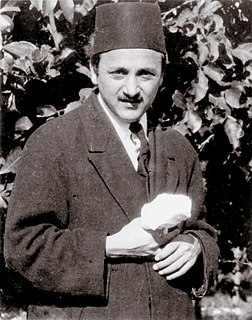A Quote by Edith Hamilton
The greater the suffering depicted, the more terrible the events, the more intense our pleasure.
Related Quotes
The second noble truth states that we must discover why we are suffering. We must cultivate the courage to look deeply, with clarity and courage, into our own suffering. We often hold the tacit assumption that all of our suffering stems from events in the past. But, whatever the initial seed of trauma, the deeper truth is that our suffering is more closely a result of how we deal with the effect these past events have on us in the present.
Suffering in the path of Christian obedience, with joy - because the steadfast love of the Lord is better than life (Psalm 63:3) - is the clearest display of the worth of God in our lives. Therefore, faith-filled suffering is essential in this world for the most intense, authentic worship. When we are most satisfied with God in suffering, he will be most glorified in us in worship. Our problem is not styles of music. Our problem is styles of life. When we embrace more affliction for the worth of Christ, there will be more fruit in the worship of Christ.
It is no wonder if, under the pressure of these possibilities of suffering, men are accustomed to moderate their claims to happiness - just as the pleasure principle itself, indeed, under the influence of the external world, changed into the more modest reality principle -, if a man thinks himself happy merely to have escaped unhappiness or to have survived his suffering, and if in general the task of avoiding suffering pushes that of obtaining pleasure into the background.
Cycling is so hard, the suffering is so intense, that it’s absolutely cleansing. The pain is so deep and strong that a curtain descends over your brain….Once; someone asked me what pleasure I took in riding for so long. ‘PLEASURE???? I said.’ ‘I don’t understand the question.’ I didn’t do it for the pleasure; I did it for the pain.
There's a lot of pain and suffering out there. I think there needs to be more joy, and love, and orgasms in the world. We are a pleasure-negati ve society. Suffering is much more acceptable. And I want to tell women that they are sexually powerful beings, but they often don't get in touch with it because they are socialized to please men.
If you stay in the mainstream of life, in other words, you let in the suffering of the world that invariably enters all of our lives by the time we're in our middle years, when we've experienced a few deaths and read a few headlines. Famine, poverty, abuse, you can't keep that all blocked out. If you let those things teach you, influence you, change you, those are the events that transition you without you even knowing it to become more compassionate. In other words, you hold onto your values, but you do it much more inclusively, humbly and in an open ended way. Suffering takes you there.
We all have families who are longing for peace in the world and an end to the suffering caused by poverty, disease, and hunger. Untold numbers of our friends, our neighbors, our parents, and our children, are hoping that there is more understanding, more generosity, more genuine friendship, and more caring among people of all faiths and cultures.





































